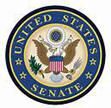 U.S. SENATE News:
U.S. SENATE News:WASHINGTON, D.C. ― U.S. Sen. Tom Udall and Senate Democrats have announced a new legislative package and campaign to reform government to ensure it works for all Americans, not just special interests and a few at the top.
The package includes Udall’s constitutional amendment to overturn Citizens United and his legislation to overhaul the dysfunctional Federal Election Commission (FEC). Udall will be the lead cosponsor of the legislation, which will be formally introduced next week.
“Americans know money in politics is out of hand. They want a government that works for all people, not just powerful billionaires. With our ‘We the People’ reform legislation, we’re taking action to fix our broken system, starting by increasing transparency and reining in special interests and big donations,” Udall said. “Over $1 billion already has been spent on the presidential election by candidates, Super PACs, and other political committees. The public is disgusted, and it’s an obvious factor in this year’s election. I’m going to work as hard as I can until we overturn Citizens United, shine a light on billionaire donors hiding in dark corners, and ensure we have a real watchdog looking over our elections. Campaigns should be about the best ideas, not the biggest checkbooks. It’s time to put elections back in the hands of American voters.”
Udall was joined at a press conference outside the U.S. Capitol by Sens. Jeff Merkley (D-Ore.), Sheldon Whitehouse (D-R.I.), Michael Bennet (D-Colo.), Amy Klobuchar (D-Minn.), Al Franken (D-Minn.), Angus King (I-Maine) and Charles Schumer (D-N.Y.) as well as leading reform advocates, including Fred Wertheimer of Democracy 21, Lisa Gilbert of Public Citizen, Norm Ornstein of American Enterprise Institute and Sandy Newman of Voices for Progress.
The event was live streamed. Video is available here.
Specifically, the legislation announced by Senate Democrats includes provisions that would:
Amend the Constitution to Stop Wealthy Special Interests from Making Unlimited Campaign Contributions
– Overturn the Supreme Court’s Citizens United decision by amending the Constitution and putting real limits on campaign financing. This constitutional amendment resolution from Udall provides Congress and the states with power to enact campaign finance reforms that withstand constitutional challenges. It would fix Citizens United, McCutcheon, Buckley, and other bad precedents. Finally, it provides the authority to regulate and limit independent expenditures, including those made by corporations and Super PACs.
Make Government More Accountable Through Campaign Disclosure and Transparency
– Reform the Federal Election Commission to ensure campaigns and special interests follow the law. This provision authored by Udall replaces the dysfunctional Federal Election Commission (FEC) and creates a new independent agency to serve as a vigilant watchdog over our nation’s campaign finance system. The newly established agency would consist of five commissioners appointed by the president and confirmed by the Senate and would have greater enforcement and investigation powers than those of the gridlocked FEC. Unlike the existing FEC, the new agency would be empowered to hold candidates, politicians, and their financial supporters accountable for violating campaign finance laws.
– Rein in the “dark money” SuperPACs. The Citizens United Supreme Court decision led to a huge growth in the amount of secret money “SuperPACs.” Senator Patrick Leahy (D-Vt.) has a provision that shuts down individual-candidate Super PACs and strengthens the rules that prohibit coordination between other outside spenders and candidates and parties.
– Mandatory disclosure of all special interest campaign donations. Citizens United unleashed a flood of undisclosed corporate dark money on our elections. This provision authored by Senator Sheldon Whitehouse (D-R.I.) would require organizations spending money in elections – including super PACS and tax-exempt 501(c)(4) groups – to promptly disclose donors who have given $10,000 or more during an election cycle. The provision includes robust transfer provisions to prevent political operatives from using complex webs of entities to game the system and hide donor identities.
– Require all candidates for federal office to report major campaign contributions within 48 hours. Today, not all candidates for federal office report campaign contributions in real time. This provision authored by Senator Angus King (I-Maine) requires all candidates for federal office, including those for the U.S. Senate, to report contributions of over $1,000 to the FEC within 48 hours.
Strengthen the Lobbying Laws to Limit Special Interest Influence in Congress
– Enact a permanent ban on lobbying by former Members of Congress. The current law prohibits senators from lobbying for a two-year period after leaving Congress. House members have a one-year ban on lobbying. This provision authored by Senator Michael Bennet (D-Colo.) permanently bans both House and Senate members from lobbying either house of Congress after they retire.
– Close the reporting loopholes that allow consultants not to register as lobbyists. This provision authored by Senator Michael Bennet (D-Colo.) requires lobbyists to register if he or she makes two or more lobbying contacts for a client over a two-year period, regardless of whether the lobbyist spends more than 20 percent of his or her time serving the particular client.
Close the Financial Services Industry’s Revolving Door
– Prohibit financial services companies from paying huge bonuses when employees take jobs in the federal government. It’s hard for Americans to believe they have a government “of the people, by the people, and for the people” when they see Wall Street banks paying their executives millions to take high level jobs in government—regulating their former industry. That’s why Senator Baldwin (D-Wis.) has a provision that prohibits private sector employers from offering bonuses to employees for leaving to join the government. Her bill also includes language to slow the revolving door by increasing cool down periods for those leaving government service and expanding recusal requirements for those entering.

